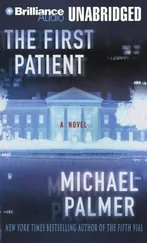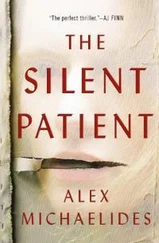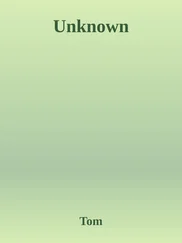Michael Ondaatje - The English Patient
Здесь есть возможность читать онлайн «Michael Ondaatje - The English Patient» весь текст электронной книги совершенно бесплатно (целиком полную версию без сокращений). В некоторых случаях можно слушать аудио, скачать через торрент в формате fb2 и присутствует краткое содержание. Жанр: Старинная литература, на русском языке. Описание произведения, (предисловие) а так же отзывы посетителей доступны на портале библиотеки ЛибКат.
- Название:The English Patient
- Автор:
- Жанр:
- Год:неизвестен
- ISBN:нет данных
- Рейтинг книги:4 / 5. Голосов: 1
-
Избранное:Добавить в избранное
- Отзывы:
-
Ваша оценка:
- 80
- 1
- 2
- 3
- 4
- 5
The English Patient: краткое содержание, описание и аннотация
Предлагаем к чтению аннотацию, описание, краткое содержание или предисловие (зависит от того, что написал сам автор книги «The English Patient»). Если вы не нашли необходимую информацию о книге — напишите в комментариях, мы постараемся отыскать её.
The English Patient — читать онлайн бесплатно полную книгу (весь текст) целиком
Ниже представлен текст книги, разбитый по страницам. Система сохранения места последней прочитанной страницы, позволяет с удобством читать онлайн бесплатно книгу «The English Patient», без необходимости каждый раз заново искать на чём Вы остановились. Поставьте закладку, и сможете в любой момент перейти на страницу, на которой закончили чтение.
Интервал:
Закладка:
“Ah, but my brother thinks me a fool for trusting the English.” He turns to her, sunlight in his eyes. “One day, he says, I will open my eyes. Asia is still not a free continent, and he is appalled at how we throw ourselves into English wars. It is a battle of opinion we have always had. One day you will open your eyes,’ my brother keeps saying.”
The sapper says this, his eyes closed tight, mocking the metaphor. “Japan is a part of Asia, I say, and the Sikhs have been brutalized by the Japanese in Malaya. But my brother ignores that. He says the English are now hanging Sikhs who are fighting for independence.”
She turns away from him, her arms folded. The feuds of the world. The feuds of the world. She walks into the daylight darkness of the villa and goes in to sit with the Englishman.
At night, when she lets his hair free, he is once more another constellation, the arms of a thousand equators against his pillow, waves of it between them in their embrace and in their turns of sleep. She holds an Indian goddess in her arms, she holds wheat and ribbons. As he bends over her it pours. She can tie it against her wrist. As he moves she keeps her eyes open to witness the gnats of electricity in his hair in the darkness of the tent.
He moves always in relation to things, beside walls, raised terrace hedges. He scans the periphery. When he looks at Hana he sees a fragment of her lean cheek in relation to the landscape behind it. The way he watches the arc of a linnet in terms of the space it gathers away from the surface of the earth. He has walked up Italy with eyes that tried to see everything except what was temporary and human.
The one thing he will never consider is himself. Not his twilit shadow or his arm reaching for the back of a chair or the reflection of himself in a window or how they watch him. In the years of war he has learned that the only thing safe is himself.
He spends hours with the Englishman, who reminds him of a fir tree he saw in England, its one sick branch, too weighted down with age, held up by a crutch made out of another tree. It stood in Lord Suffolk’s garden on the edge of the cliff, overlooking the Bristol Channel like a sentinel. In spite of such infirmity he sensed the creature within it was noble, with a memory whose power rainbowed beyond ailment.
He himself has no mirrors. He wraps his turban outside in his garden, looking about at the moss on trees. But he notices the swath scissors have made in Hana’s hair. He is familiar with her breath when he places his face against her body, at the clavicle, where the bone lightens her skin. But if she asked him what colour her eyes are, although he has come to adore her, he will not, she thinks, be able to say. He will laugh and guess, but if she, black-eyed, says with her eyes shut that they are green, he will believe her. He may look intently at eyes but not register what colour they are, the way food already in his throat or stomach is just texture more than taste or specific object.
When someone speaks he looks at a mouth, not eyes and their colours, which, it seems to him, will always alter depending on the light of a room, the minute of the day. Mouths reveal insecurity or smugness or any other point on the spectrum of character. For him they are the most intricate aspect of faces. He’s never sure what an eye reveals. But he can read how mouths darken into callousness, suggest tenderness. One can often misjudge an eye from its reaction to a simple beam of sunlight.
Everything is gathered by him as part of an altering harmony. He sees her in differing hours and locations that alter her voice or nature, even her beauty, the way the background power of the sea cradles or governs the fate of lifeboats.
They were in the habit of rising with daybreak and eating dinner in the last available light. Throughout the late evening there would be only one candle flaring into the darkness beside the English patient, or a lamp half filled with oil if Caravaggio had managed to forage any. But the corridors and other bedrooms hung in darkness, as if in a buried city. They became used to walking in darkness, hands out, touching the walls on either side with their fingertips.
“No more light. No more colour.” Hana would sing the phrase to herself again and again. Kip’s unnerving habit of leaping down the stairs one hand halfway down the rail had to be stopped. She imagined his feet travelling through air and hitting the returning Caravaggio in the stomach.
She had blown out the candle in the Englishman’s room an hour earlier. She had removed her tennis shoes, her frock was unbuttoned at the neck because of summer heat, the sleeves unbuttoned as well and loose, high up at the arm. A sweet disorder.
On the main floor of the wing, apart from the kitchen, library and deserted chapel, was a glassed-in indoor courtyard. Four walls of glass with a glass door that let you into where there was a covered well and shelves of dead plants that at one time must have flourished in the heated room. This indoor courtyard reminded her more and more of a book opened to reveal pressed flowers, something to be glanced at during passing, never entered.
It was two a.m.
Each of them entered the villa from a different doorway, Hana at the chapel entrance by the thirty-six steps and he at the north courtyard. As he stepped into the house he removed his watch and slid it into an alcove at chest level where a small saint rested. The patron of this villa hospital. She would not catch a glance of phosphorus. He had already removed his shoes and wore just trousers. The lamp strapped to his arm was switched off. He carried nothing else and just stood there for a while in darkness, a lean boy, a dark turban, the kara loose on his wrist against the skin. He leaned against the corner of the vestibule like a spear.
Then he was gliding through the indoor courtyard. He came into the kitchen and immediately sensed the dog in the dark, caught it and tied it with a rope to the table. He picked up the condensed milk from the kitchen shelf and returned to the glass room in the indoor courtyard. He ran his hands along the base of the door and found the small sticks leaning against it. He entered and closed the door behind him, at the last moment snaking his hand out to prop the sticks up against the door again. In case she had seen them. Then he climbed down into the well. There was a cross-plank three feet down he knew was firm. He closed the lid over himself and crouched there, imagining her searching for him or hiding herself. He began to suck at the can of condensed milk.
She suspected something like this from him. Having made her way to the library, she turned on the light on her arm and walked beside the bookcases that stretched from her ankles to unseen heights above her. The door was closed, so no light could reveal itself to anyone in the halls. He would be able to see the glow on the other side of the French doors only if he was outside. She paused every few feet, searching once again through the predominantly Italian books for the odd English one that she could present to the English patient. She had come to love these books dressed in their Italian spines, the frontispieces, the tipped-in colour illustrations with a covering of tissue, the smell of them, even the sound of the crack if you opened them too fast, as if breaking some minute unseen series of bones. She paused again. The Charterhouse of Parma .
“If I ever get out of my difficulties,” he said to Clelia, “I shall pay a visit to the beautiful pictures at Parma, and then will ou deign to remember the name: Fabrizio del Dongo.”
Caravaggio lay on the carpet at the far end of the library. From his darkness it seemed that Hana’s left arm was raw phosphorus, lighting the books, reflecting redness onto her dark hair, burning against the cotton of her frock and its puffed sleeve at her shoulder.
Читать дальшеИнтервал:
Закладка:
Похожие книги на «The English Patient»
Представляем Вашему вниманию похожие книги на «The English Patient» списком для выбора. Мы отобрали схожую по названию и смыслу литературу в надежде предоставить читателям больше вариантов отыскать новые, интересные, ещё непрочитанные произведения.
Обсуждение, отзывы о книге «The English Patient» и просто собственные мнения читателей. Оставьте ваши комментарии, напишите, что Вы думаете о произведении, его смысле или главных героях. Укажите что конкретно понравилось, а что нет, и почему Вы так считаете.












